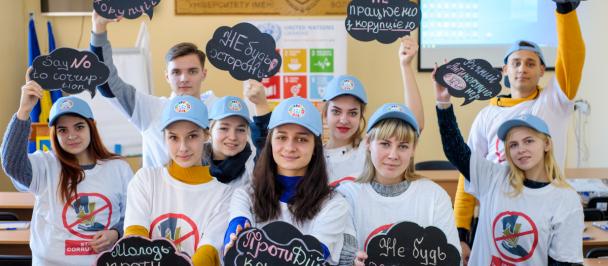In recent years, technology has become one of the greatest allies for preventing and tackling corruption. Digitalization and digital transformations have advanced and transformed the public sector tremendously, with the enormous potential and wide-ranging benefits of improving the efficiency and effectiveness in public administration and service delivery, as well as enhancing transparency, accountability, accessibility and citizen participation.
Technology and anti-corruption measures have a mutually reinforcing relationship, which has been further consolidated by COVID-19. Through effective digital governance, technology has not only been instrumental for rapid response to the COVID-19 crisis, but also enabled transparency and accountability of government institutions.
Singapore has leveraged its digital approach and Smart Nation initiative in responding effectively to different areas of the pandemic; surveillance, prevention and containment, diagnosis, and treatment. The Republic of Korea’s rapid innovations in response to COVID-19 have not only helped to test, trace and treat cases, it has also ensured accountability and openness in its response through measures such as real-time public information disclosure.
Digital initiatives in COVID-19 responses have also included open-contracting policies in Paraguay and Ukraine, open data portals used to monitor COVID-19 information in Serbia, and digital payment platforms to reduce the risk of fraud and corruption and authenticate COVID-19 cash transfers in Malawi.
Technology for integrity, and integrity for technology
COVID-19 has taught us that technology can play an important role during a global health crisis. Yet these responses have not been without concerns over privacy and personal data protection.
Now the question is, how can we harness the benefits of technology while minimizing the risks of misuse or abuse for private gain? The starting point is to ensure that technology providers and governments are more accountable in the use of data and regulation of technologies. Without integrating transparency, accountability and integrity in digital transformations and development interventions, there are always risks of misuse of technology for private gain. The societal impacts will include the erosion of rights, civil liberties, trust and social cohesion, besides issues related to personal data privacy, security and protection.
These concerns have been discussed in relation to using technology to facilitate contact-tracing of COVID-19 infections but are also more fundamental priorities in the ethical use of technology. In particular, the principles of transparency, accountability and integrity must be considered in the context of emerging technology developments – such as artificial intelligence, blockchain and distributed ledger technology, and big data to help build trust, enhance digital governance and regulatory mechanisms, and ensure the responsible use of data and technology.
The way forward
UNDP’s role as SDG Integrator is helping countries to address public and private challenges connected to COVID-19, and decision-makers to look towards 2030 and manage uncertainty in governance, social protection, the green economy and digital disruptions. #NextGenUNDP is building integrated solutions that help build a more inclusive, resilient and sustainable future, in alignment with the SDGs.
UNDP’s new Digital Strategy, which not only aims to strengthen UNDP’s role as a digital service provider, but also to give much-needed technical support to countries in strengthening their infrastructure for digital governance, allows us to deliver more and better results.
In the context of the COVID-19 pandemic, the digital foundations in a country, including digital infrastructure, digital governance and digital services, can be crucial for a country’s progress in recovering from crisis. The benefits of these tools can be wide-ranging. The Electronic Vaccine Intelligence Network in India has been able to trace the supply chain of personal protective equipment supplied to more than 28,000 health facilities across the country.
The integrated approach adopted by the Global Centre for Technology, Innovation and Sustainable Development in Singapore and the Global Anti-Corruption Programme seeks to leverage ‘technology for integrity, and integrity for technology’, and ensure that we increasingly see sustainable results from UNDP’s support to countries in facing the emerging challenges of today, focusing on governance, social protection, green economy and digital disruption.

 Locations
Locations

